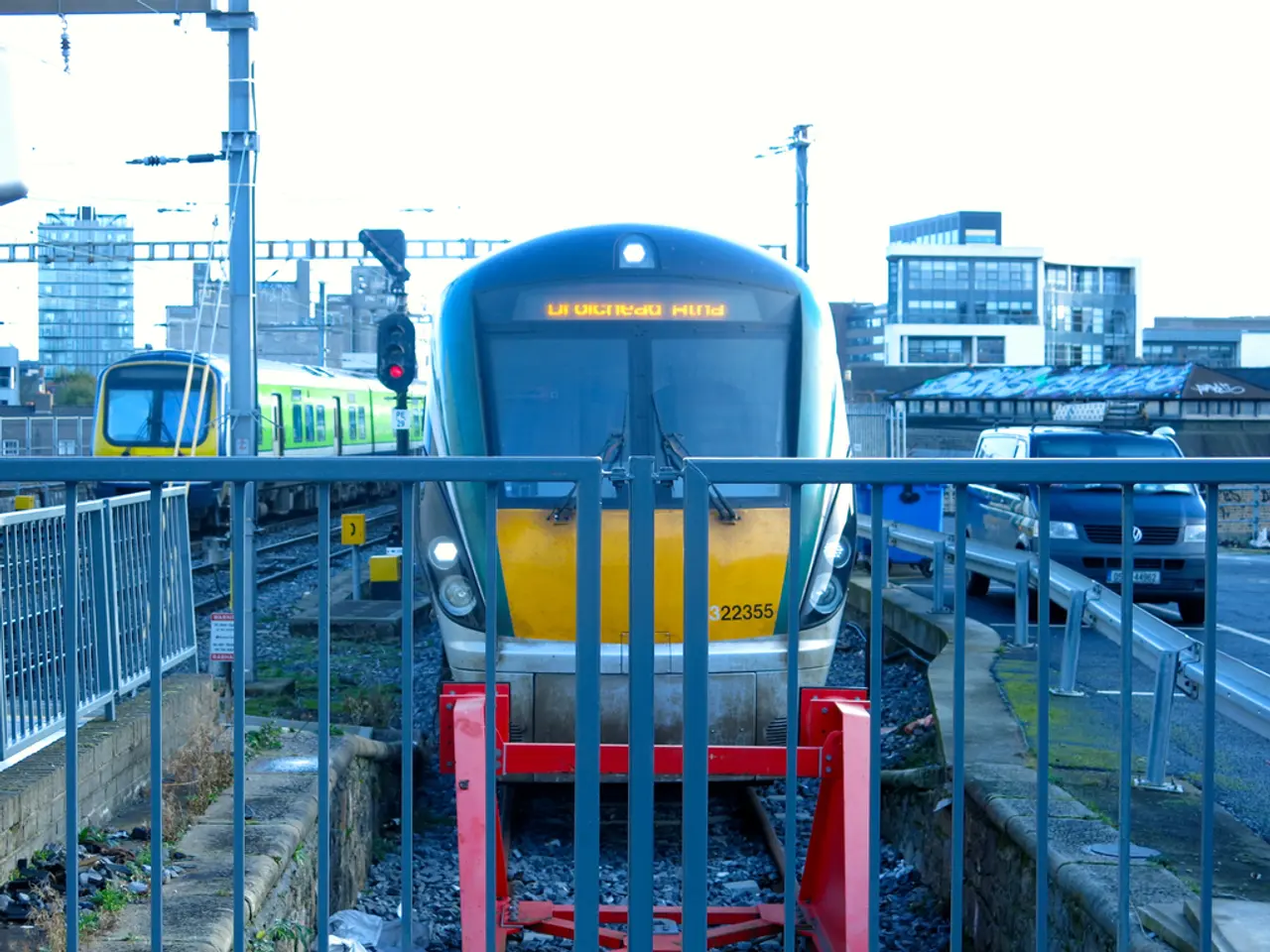Railway Manager Faces Imminent Obstacles
Deutsche Bahn, Germany's national railway company, is currently without a CEO following the departure of Richard Lutz. As of August 2025, a successor has not yet been named, with the appointment process facing difficulties due to reported rejections from potential candidates[1][3][5].
The incoming CEO will inherit a range of challenges, including an aging rail infrastructure in need of repair, tight finances, and dissatisfied passengers[1]. Improving punctuality, modernizing infrastructure, financial stabilization, navigating political pressure for reform, and managing labor relations are all top priorities[1][4][5].
Punctuality has been a persistent issue for Deutsche Bahn, especially after the problematic introduction of hydrogen-fueled trainsets, which reduced service reliability[4]. The rail system blames dilapidated tracks as the main reason for late trains[2].
The upcoming wage negotiations with GDL, the German Train Drivers' Union, are expected to be challenging. Tensions with unions over wages and working conditions could impact operations and costs significantly[4]. The successor to Claus Weselsky, the former head of GDL, may continue to advocate for higher wages and better working conditions, potentially leading to confrontations and strikes[3].
The Hamburg-Berlin route is currently undergoing a comprehensive renovation, and the rail system plans to renovate around 40 heavily used routes by 2036, involving months-long closures for extensive modernizations[2]. However, these closures have been met with criticism from some transport experts due to the disruptions caused[1].
The restructuring program initiated by Richard Lutz in 2024 aims to improve the company's financial situation by cutting thousands of jobs and increasing profitability[6]. DB Cargo, a transport subsidiary of Deutsche Bahn, needs to write black figures next year as determined by the EU Commission[7].
The current rail strategy will be presented by Federal Transport Minister Patrick Schnieder on September 22, with a focus on satisfying customers[8]. Broader economic conditions in Germany and Europe, including inflation and energy costs, pose further difficulties for managing operating expenses and investments[5].
Multiple individuals, including DB Regio CEO Evelyn Palla, former finance minister Joerg Kukies, and Siemens Mobility CEO Michael Peter, have been speculated as potential successors[1]. The new CEO will need to secure the necessary funds in the coming years to continue the infrastructure renovation plan and steer the company towards profitability.
Sources:
- BBC News
- Deutsche Welle
- Reuters
- Der Spiegel
- Deutsche Bahn Annual Report 2025
- Handelsblatt
- EU Commission Press Release
- Deutsche Bahn Press Release
- The newly appointed CEO of Deutsche Bahn will need to address not only the company's financial stability and aging infrastructure but also implement community policies that foster vocational training for employees, as investing in human resources will be crucial for the railway company's future success.
- In addition to prioritizing punctuality, modernization, and financial stabilization, the incoming CEO must also ensure that the employees receive competitive wages and fair working conditions, as ongoing labor disputes with unions like GDL could have significant impacts on operations and costs within Deutsche Bahn.







